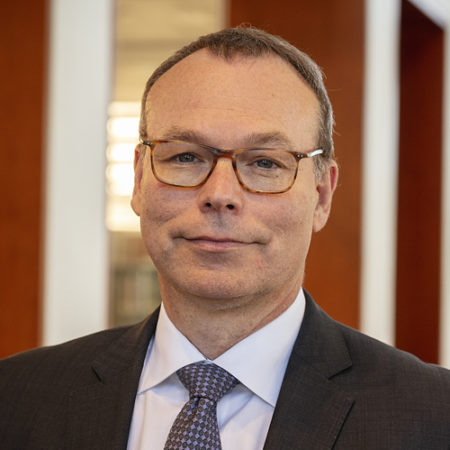National Academy of Medicine addresses urgent threats of COVID-19 and climate change at annual meeting
The COVID-19 pandemic and climate change are twin calamities that cannot be resolved without global cooperation, consistent communication and leadership and urgent innovation by the scientific community.
That was the message of last week’s virtual annual meeting of the National Academy of Medicine (NAM) titled “Confronting Urgent Threats to Human Health and Society: COVID-19 and Climate Change.”

Keynote speakers included Microsoft cofounder Bill Gates, co-chair of the Bill & Melinda Gates Foundation; Anthony Fauci, MD, director of the National Institute of Allergy and Infectious Diseases; and Ursula von der Leyen, MD, MPH, president of the European Commission, the executive branch of the European Union.
The scientific sessions were introduced by NAM member Jeff Balser, MD, PhD, President and CEO of Vanderbilt University Medical Center, dean of Vanderbilt University School of Medicine and chair of the annual meeting’s program planning committee.
“One year ago, the world looked very different than it does today,” Balser said in introducing the first session on COVID-19. “A global public health catastrophe, the COVID-19 pandemic, is reshaping our society.
“Now more than ever, those of us in the scientific community find ourselves at an inflection point, one where all of us here today and the public we’re serving are facing unprecedented challenges, from the personal tragedies of loss of life to economic hardships not seen in America for nearly a century.
“Yet throughout history we have seen that meaningful change nearly always occurs in times of crisis,” Balser said. Both crises, “the COVID-19 pandemic and climate change, … require our boldest thinking and our decisive action.”
In his keynote address, Gates called COVID-19 “an instructive adversary” that has exposed “incredible gaps in our preparedness and our health system.” It’s also focused the research community on the urgent innovation of new diagnostic tests, treatments and vaccines.
“In the case of climate change, we also have to work on an urgent basis,” he said. “It will take decades even after we have breakthrough innovations to make the progress we need.
“As bad as COVID-19 has been, the damage of climate change will be even worse, and there won’t be an intervention like a vaccine to bring it to an end,” Gates said. “It’s not just about pandemics. It’s about acting together on very tough problems, driving innovation and creating policies for deployment.”
Fauci, whose institute is leading efforts to develop new COVID-19 treatments and vaccines, said he was cautiously optimistic that a safe and effective vaccine will be approved by the end of 2020 or beginning of 2021.
In the meantime, the spread of the virus can be controlled, Fauci said, without shutting down the economy if five prudent public health measures are consistently followed: universal mask-wearing; maintaining social distancing; avoiding crowds; doing things outside; and frequent hand washing.
“Things as simple as that, without necessarily shutting down the country, can have a major impact on inhibiting acquisition and transmission (of the virus),” he said.
In a session on how science and policymaking can address complex societal threats, U.S. Rep. Donna Shalala, D-Florida, former U.S. Health and Human Services Secretary, said consistent messaging by scientific and political leaders is key.
“An agreement on what we all must do … is absolutely critical,” she said.
The NAM (formerly the Institute of Medicine) was established in 1970 as the health arm of the National Academies. With more than 2,000 members, NAM provides independent, authoritative and trusted advice nationally and globally.
